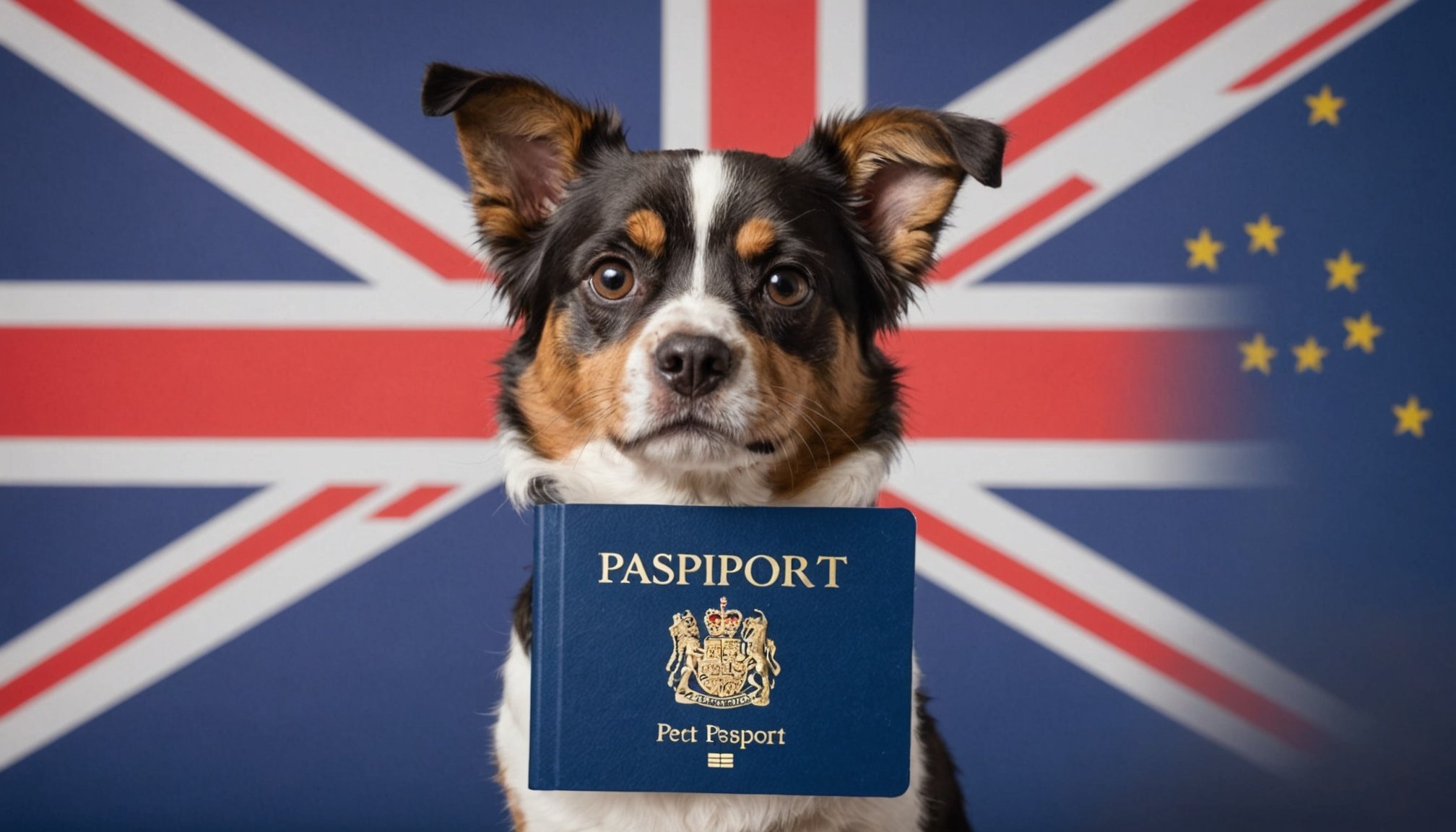The world of pet travel underwent significant changes in the aftermath of Brexit. Pet passports, a previously valid document for the United Kingdom, have been replaced by a different system. This significant shift applies to all pet owners who wish to travel with their pets from the UK to Northern Ireland, and other countries within the European Union. This article aims to provide detailed and accurate information about the current requirements for travelling with pets post-Brexit, as of 2023.
1. The Animal Health Certificate (AHC)
The UK is now considered a third country by the European Union, which means that the old pet passport system is no longer applicable. Instead, an Animal Health Certificate (AHC) is required. This document certifies that your pet is healthy and fit for travel, which is a crucial requirement for both the EU and Northern Ireland.
A voir aussi : Unlocking the Path: Essential Qualifications to Become a Primary School Teacher in the UK for 2023
The AHC is a document issued by a vet, and it must be obtained every time you want to travel with your pet. Unlike the pet passport that was valid for the lifetime of the pet, the AHC is valid only for a single trip. The certificate is valid for 10 days from the issue date for entry into the EU or Northern Ireland, and for 4 months for re-entry into the UK.
2. Vaccination Requirements
A significant requirement that comes with the AHC is vaccination, particularly against rabies. This vaccination is mandatory for all pets travelling from the UK to the European Union and Northern Ireland. Your pet must be at least 12 weeks old before it can be vaccinated against rabies, and the vaccination must be administered at least 21 days before travel.
A lire également : Discover the 2023 Food Hygiene Standards Revolutionizing UK Restaurants
It is important to note that certain countries may have additional vaccination requirements beyond the rabies vaccination. Therefore, always check the specific pet travel rules of the country you will be visiting beforehand.
3. Microchipping
Another requirement for your pet to travel post-Brexit is microchipping. Your pet must be microchipped before receiving their rabies vaccination. The microchip number will be included in the AHC and helps in the identification of your pet.
This microchip serves dual purposes – for identification, and to verify the connection between the pet and the rabies vaccination. The microchip must comply with ISO 11784 or Annex A to ISO standard 11785. If it does not, you will need to bring your own microchip scanner.
4. Tapeworm Treatment
For dogs travelling to certain countries, tapeworm treatment is mandatory. The treatment must be administered by a vet between 24 and 120 hours (1-5 days) before the scheduled arrival time in the country. This requirement applies to dogs travelling to Ireland, Malta, Finland, and Norway.
It is crucial to note that the tapeworm treatment is not required for dogs entering most EU countries from the UK, including Northern Ireland. Nevertheless, as a pet owner, it is always recommended to keep up with the general health precautions for your pets.
5. Travelling with Pets
The transition from pet passports to AHCs has made the process of travelling with pets slightly more complex. It involves detailed planning and regular visits to the vet to ensure that all health requirements are met.
Moreover, always check the specific pet travel regulations of the country you will be visiting. Some countries may have additional or different requirements. This especially applies to countries outside the EU and Northern Ireland.
Remember, travelling can be a stressful experience for animals, so it’s important to make the journey as comfortable as possible for your pet. Prepare a comfortable travel carrier, pack their favourite food and toys, and make regular stops if you’re driving. Keep your pet’s health and comfort your top priority during the journey.
6. The Particular Case of Commercial Transport
For those involved in commercial transport of pets from Great Britain to Northern Ireland or the European Union, the requirements change slightly. In addition to obtaining an Animal Health Certificate and ensuring vaccination against rabies, dogs, cats, or ferrets being transferred for commercial reasons must also satisfy additional conditions.
These animals are subjected to a clinical examination by an official veterinarian within 48 hours prior to transport. They must also undergo additional tests and treatments, which may include tick and tapeworm treatments, depending on the country they’re going to. For commercial transport, the pet’s microchip number, the number of the health certificate, and the details of the vaccinations must be entered into TRACES (Trade Control and Expert System), which is the European Union’s veterinarian certification tool.
It’s also critical to obtain a commercial transport authorisation for the vehicle you plan to transport the pets in, and the transporter or attendant must have a certificate of competence. The journey must comply with the Animal Welfare Act 2006, ensuring the welfare of the animals during the journey.
7. Accommodations for Specific Breeds and Exotic Pets
Every pet owner should be aware that there may be different requirements for certain breeds, especially dogs and cats, and exotic pets. If your pet is a ‘listed’ breed such as a pit bull terrier, Japanese Tosa, Dogo Argentino, or Fila Brasiliero, it may be subject to extra control measures, or it may even be banned from entry into some EU countries or Northern Ireland.
In terms of exotic pets, the rules are even more stringent. Exotic pets, such as reptiles, birds, and rodents, often require a different form of health certificate, and there may be restrictions on the types of exotic pets that can be brought into certain countries. It is best to check with the relevant authorities in the country you are planning to visit to ensure you meet all requirements.
Conclusion
The changes in pet travel rules since Brexit have increased the complexity of travelling with pets from the UK to Northern Ireland and the European Union. Now, pet owners need to obtain an Animal Health Certificate, ensure their pet is appropriately vaccinated, microchipped, and possibly treated for tapeworm, depending on the pet’s destination. Commercial transporters and owners of certain breeds or exotic pets must comply with additional requirements.
It is crucial for pet owners to familiarise themselves with these new rules and requirements to prevent any hiccups during travel. By fulfilling all the necessary preparations and keeping the pet’s comfort and health in mind, pet owners can ensure a smooth journey for their furry or scaly companions.
While the transition from pet passports to AHCs and the additional requirements may feel daunting, they are crucial steps to ensure the health and safety of your pet and the animals in the destination country. So remember, plan ahead, consult with your vet, and always keep your pet’s wellbeing in mind. Happy travels with your pet!











